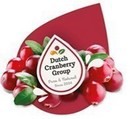Tholen – There is a lot of misunderstanding about the cabinet’s plans to increase the consumption tax by 17 cents per liter as of January 1, 2024. These weeks, the House of Representatives will again be in conclave about whether or not to exclude pure juices from the increase in taxes. For Rose Khorenyan, owner of Dutch Cranberry Group, it is clear. “Sugar tax on Cranberry juice; It shouldn’t get any crazier. We are seriously considering continuing our business operations outside the Netherlands.”
“We have been paying consumption tax on our juices for several years. This was supposed to be a temporary measure in the mid-1990s, but now it seems like an easy way to raise a lot of money,” Rose continues. By increasing this consumption tax, the government wants to act as a kind of ‘sugar tax’ to combat the consumption of unhealthy soft drinks and energy drinks. Because pure fruit juices also fall under this consumption tax, they will now also be affected by the increase. “In our opinion, this is an unfair way to make money, because why would you charge a sugar tax on pure cranberry juice, pomegranate juice, aloe vera juice or elderberry juice?” the businesswoman wonders out loud.

“We believe that you should not equate our products with a soft drink. We make pure products and do not want to add sugar to our juices. That has brought us to where we are now. People choose our juices much more often and you come in abroad, people are surprised that these types of juices are still made. Drinking cranberry juice is also often advised by doctors to drink for urinary tract problems,” Rose emphasizes the healthy aspects of the pure juice.
Increase can be disastrous
She states that increasing the load on pure juices produces the opposite effect than the intention. This could be disastrous, especially for organic products, she explains. “This government talks a lot about encouraging food and drink made from organic products, but they do not support us in bringing this to the market at a reasonable price. In our opinion, increasing the consumption tax will do the opposite; People will certainly more often opt for the unhealthy variant, which is made from a concentrate to which water and a lot of sugar are added.”
“Pure cranberry juice, pure blackcurrant juice (with raw material from Zeeland), cherry juice (raw material from Zeeland), Raspberry juice (origin in the Netherlands), Redcurrant juice and Blackberry juice (also from the Netherlands). The question remains whether we can continue to do this in the future offer for a reasonable price. We predict that prices will rise enormously and drinking juice will become a luxury. Remember that a 1 liter bottle will soon have a tax of €0.26. That’s easy money to make In any case, we don’t deserve this so easily.”
Common sense
Under the initiative ‘We don’t care anymore’, several companies have already taken action against the intended tax increase. They hope to use this to convince members during the House of Representatives debate next week to exclude pure juices from the increase. Rose also calls for the use of common sense. “We hope that there are really sensible people in the House of Representatives. Not people who talk about organic, but understand nothing about how our pure products are made. A sugar tax really cannot be imposed on our pure juices. Set our juices are not the same as a soft drink and make an exception for fruit juices, which do not contain sugar. If this goes ahead, we will seriously consider continuing our business operations outside the Netherlands.”
For more information:
Dutch Cranberry Group 
Klundertseweg 32 A
4761 PR Zevenbergen
0031(0)168-785353
info@dutchcranberrygroup.nl
www.dutchcranberrygroup.nl
